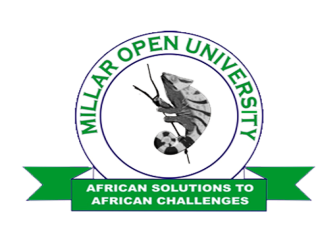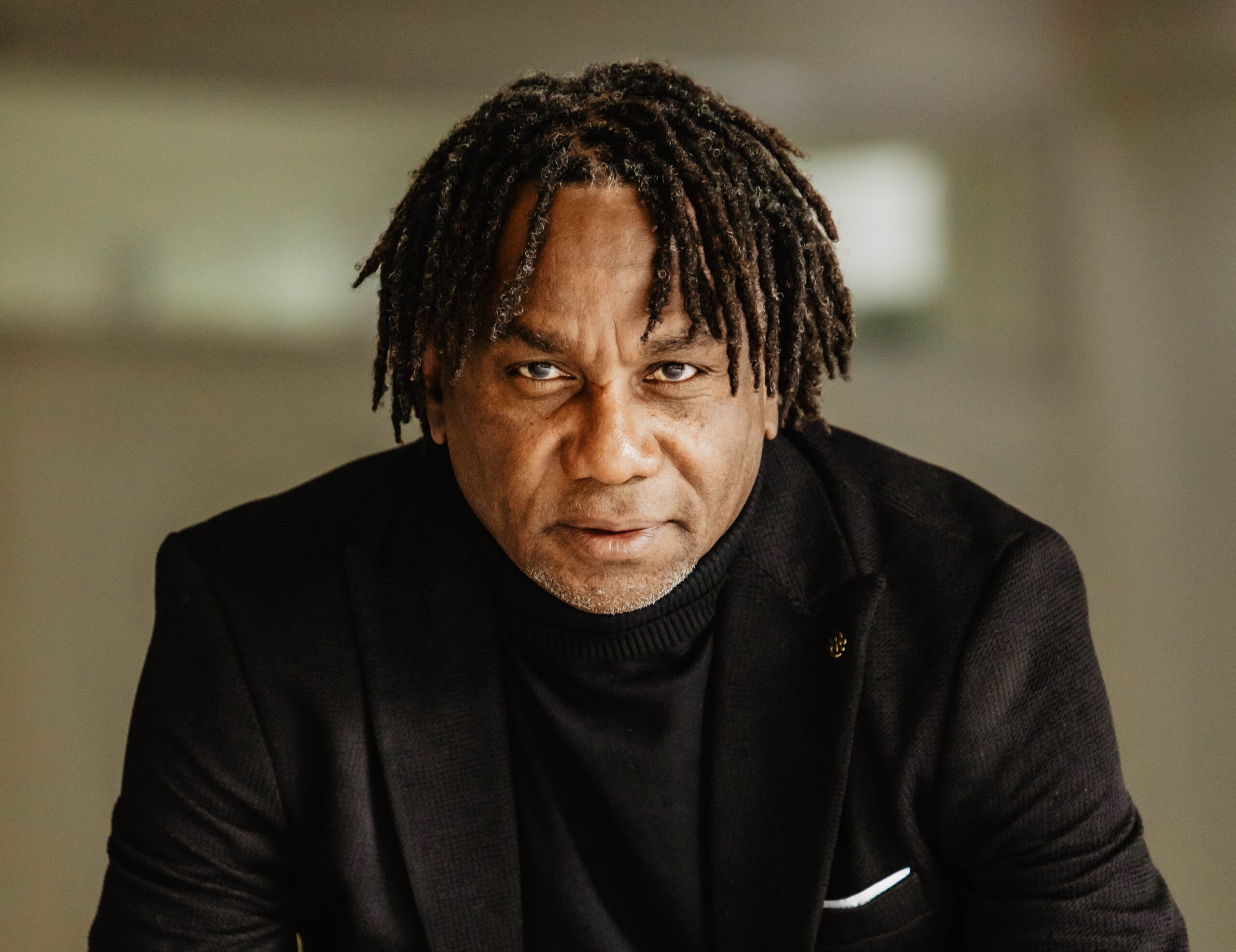A transcontinental master's program across Amsterdam and Ghana
Master of Philosophy (MPhil) in African Culture and Development
In collaboration with

Program Introduction
Start Date: January 2026
The Master of Philosophy (MPhil) in African Culture and Development is a two-year (part-time), cross-continental academic program designed for adult learners eager to challenge dominant knowledge systems and advance culturally grounded development practice.
Whether you are a mid-career professional, early researcher, or lifelong learner, this program provides the intellectual space, supervision, and academic community to deepen your engagement with African-centered development thinking.
- Engage in deep study of African philosophies, indigenous knowledge systems, and decolonial development approaches.
- Participate in immersive learning across the Netherlands and Ghana.
- Contribute to emerging global dialogues on African-centered thought and praxis.
- Contribute to transformative conversations around epistemic justice and Pan-African development.
Program Aims & Objectives
This program positions culture as a field of science and promotes evidence-based approaches to development. Learning outcomes are guided by Bloom’s taxonomy, ensuring that students remain at the center of knowledge creation.
The aims are to:
- Foster critical learning that connects cultural knowledge to African development challenges.
- Equip students with advanced research tools to broaden the definition of science to include culture.
- Highlight the relevance of African sciences in global academic and policy debates.
- Develop practical skills for designing culturally grounded strategies in poverty reduction and sustainable development.
- Language of instruction : English
- Mode: Modular part-time, covering six (6) trimesters
- Location : In-person lectures in the Netherlands and Ghana
- Tuition Fee : €9,000 (€4,500 per academic year)
Course delivery
Learning is structured over six trimesters (two years), combining classroom instruction, independent study, and immersive fieldwork. Students begin in Amsterdam and transition to Ghana for field-based learning before undertaking their thesis. Instruction methods include: lectures, research seminars, presentations, field visits, and supervised thesis writing.
Year one
Term 1 (Jan - Mar)
Term 2 (May - Jul)
T3 (Sep-Nov)
Foundational courses and electives (4) in NL
Foundational courses and electives (4) in NL
Field visit, electives (2) term paper in Ghana
Year Two
T4 (Jan-Mar)
T5 (May-Jul)
T6 (Sep-nov)
Research seminars and presentation of term paper
Independent research and thesis development
Thesis submission and oral defense (Viva)
6 trimesters, modular
full-time
term paper preparation &
submission
independent thesis research
project
Is This Program Right for You?
-
The MPhil in African Culture and Development is designed for ambitious learners who want to advance their expertise in Afrocentric scholarship and African Studies.
The program particularly suits individuals who:
- Are motivated by Pan-African and decolonial approaches to education.
- Wish to explore how African philosophies, and indigenous knowledge systems shape development.
- Enjoy research, critical reading, and advanced academic writing.
- Seek to conduct original field-based research in both Africa and Europe.
- Aspire to contribute as independent scholars in African Studies and global development debates.
- Have the ambition to become an independent researcher.
- Inspired by what you’ve read? Start your application now.
Admission Requirements
Applicants must hold a bachelor’s degree with at least a second class lower (or Dutch equivalent of 6/10) and strong English skills.
If the prior degree was not taught in English,TOEFL, IELTS, or equivalent proof of proficiency is required.
Applicants are required to apply to the program via the Broos Institute website and submit the following:
-
An application form
-
Two academic references
-
Proof of linguistic proficiency (if applicable)
Questions about applying? Visit our contact page - our admissions team is here to support you through every step of the enrollment process.
Faculty & Lecturers
Mr. Marvin Hokstam Baapoure

Prof. Frederick Dayour

- Associate Professor, Hospitality and Tourism Management, University for Development Studies
- Research areas: tourism management, destination development, community participation
- Fellow of the Higher Education Academy (FHEA)
- PhD in Hospitality and Tourism Management, University of Surrey, UK (2015–2018)
- Postgraduate Certificate in Learning and Teaching (Fellow of the Higher Education Academy), University of Surrey, UK (2016–2018)
- MPhil in Tourism Management, University of Cape Coast, Ghana (2010–2012)
- BSc in Tourism Management, University of Cape Coast, Ghana (2005–2009)
- Contributor to tourism policy development in Ghana
- Active in international tourism research networks
- Email: fdayour@ubids.edu.gh
- Phone: +233 551102422
Prof. Francis Kwabena Obeng

- Vice Dean, Faculty of Agribusiness and Communication Sciences, University for Development Studies
- Head, Department of Agricultural Extension, Rural Development and Gender Studies
- Research areas: participatory extension, climate change, and rural development
- PhD in Social and Behavioural Sciences, University of Amsterdam, Netherlands (2001–2005)
- MPhil in Agricultural Extension, University of Cape Coast, Ghana (1995–1997)
- BSc (Hons) Agriculture and Diploma in Education, University of Cape Coast, Ghana (1985–1989)
- Senior Lecturer and consultant in agricultural extension
- Advisor to community-based development programs
- Email: francisobeng@yahoo.com / fkobeng@uds.edu.gh
Prof. Anatoli Ignatov

- Assistant Professor, Department of Sustainable Development, Appalachian State University
- Research areas: political ecology, global development, sustainability
- Ph.D., Political Science, Johns Hopkins University, August 2014
- B.A., Political Science (Summa Cum Laude), San Francisco State University, January 2007
- A.A. Political Science, A.A. Sociology, A.A. Anthropology, Contra Costa College, May 2004
- English and American Studies, Sofia University, 1997-2001
- Postdoctoral Scholar, University of South Florida (2014–2015)
- Email: anatoli@appstate.edu
- Phone: +1 410 336 8055
Prof. Dominic Alimbey Dery

- Associate Professor, Culture and Development Studies
- Research areas: cultural development, human resource development, education
- Doctor of Philosophy in Culture and Development Studies University for Development Studies (UDS)/Millar Transdisciplinary Institute. November, 2018.
- Master Arts (MA) Degree in Human Resource Development. University of Cape Coast, Center for Development Studies (CDS), Cape Coast, June, 2005- July, 2007.
- Bachelor of Arts (B.A.) Hons. Degree in English Language and Classics. University of Cape Coast (UCC), Cape Coast, October, 1993- August, 1998.
- Diploma in Education (Dip ED). University of Cape Coast (UCC) October 1994-June 1996.
- Senior Lecturer, Department of Languages and Liberal Studies, Tamale Technical University
- Email: tysondery71@yahoo.com
- Phone: +233 208162470 / +233 246622477
Prof. Samuel Z. Bonye

- Senior Lecturer, Department of Community Development, UDS, Wa
- Research areas: participatory development, governance, community empowerment
- PhD Candidate, University for Development Studies, Tamale, Ghana (2010)
- MPhil Development Studies, University for Development Studies, Tamale, Ghana (2007)
- Head of Department of Community Development, UDS (since 2013)
- Email: ziembonye@gmail.com
- Phone: +233 244825618
Prof. Chaka A. Uzondu

- Associate Professor and Senior Executive in International Development
- Research areas: human rights-based approaches, climate change, advocacy
- Policy Manager, WaterAid Ghana (2012–2019)
- Acting Head of Policy, Advocacy and Campaigns, WaterAid Ghana
- Based in Accra, Ghana
Prof. Mamudu Abunga Akudugu

- Full Professor and Senior Research Fellow, IIRaCS, UDS
- Research areas: livelihoods, rural development, agricultural economics
- PhD in International and Rural Development (focus on Livelihoods), University of Reading, UK (2014)
- MPhil in Agricultural Economics, University of Ghana (2009)
- BSc in Agricultural Economics and Extension, with Agriculture Technology, University for Development Studies, Ghana (2005)
- Head, University Consultancy Services Unit, UDS
- Consultant to national and international organizations including FAO (UN)
- Email: makudugu@uds.edu.gh
- Phone: +233 504395605 / +233 240052058
Dr. Abazaami Joseph

- Senior Research Fellow, University for Development Studies, Navrongo
- Research areas: development planning, climate change adaptation, sustainable development
- Doctor of Philosophy Degree in Development Planning and Management (Spatial Planning), 2011.
- Master of Science Degree in Development Planning and Management, 2005.
- Bachelor of Arts Degree in Geography and Resource Development (First Class Honours) 2002.
- S.S.S.C.E. Certificate – 1996
- B.E.C.E.Certificate – 1993
- Consultant for UNICEF, CARE International, ActionAid, and the World Bank
- Email: jabazaami@uds.edu.gh
- Phone: +233 244990575
Prof. David Millar

- Full Professor of Agricultural and Environmental Sciences
- Research areas: indigenous knowledge, sustainable development, agricultural innovation
- B.Sc. (Hons) Animal Science, second class Upper Division, University of Ghana, Legon; July 1979.
- Post-Graduate Certificate; Rural Extension (ICRE), International Agricultural Centre, The Netherlands (1981).
- Post-Graduate Certificate; Farming Systems Research (ICRA), International Agricultural Centre, The Netherlands (1983).
- M.Sc. (Management of Agricultural Knowledge Systems), Wageningen Agricultural University, the Netherlands, September 1992.
- Ph.D. (Agricultural and Environmental Sciences) Wageningen Agricultural University, the Netherlands, May 1996.
- Acting Pro-Vice Chancellor, University for Development Studies (2007)
- Council Member, University for Development Studies (2007)
- International research collaborations on indigenous knowledge and sustainability
- Email: millarad1@yahoo.com / millarazu@gmail.com
- Phone: +233 244720834 / +233 7223500
Requirements for Graduation
To complete the program, students must achieve a total of 61 credit hours (122 ECTS), which include coursework, seminar presentations, a term paper, and a thesis.
Credit hours vs. ECTS
For international students, it’s helpful to understand how workload is calculated under the Ghanaian university credit system.
At MITDS, one credit hour equals two ECTS, and each ECTS represents about 40 hours of study, including lectures, homework, and preparation.
Assessment Regulations
Students enrolled in the Master’s program must achieve a minimum of 60% in all taught courses. The thesis will be assessed within three months of submission by internal and external examiners, with final performance confirmed by the Graduate Board. Successful candidates are awarded the Master’s degree.
Get the full Master’s curriculum, course modules, tuition fee structure and program details in one place.
The program is delivered in partnership with Ghana’s Millar Institute (MITDS), renowned for Afrocentric research.
Explore upcoming events, workshops, and conferences, allowing you to engage with the community.

